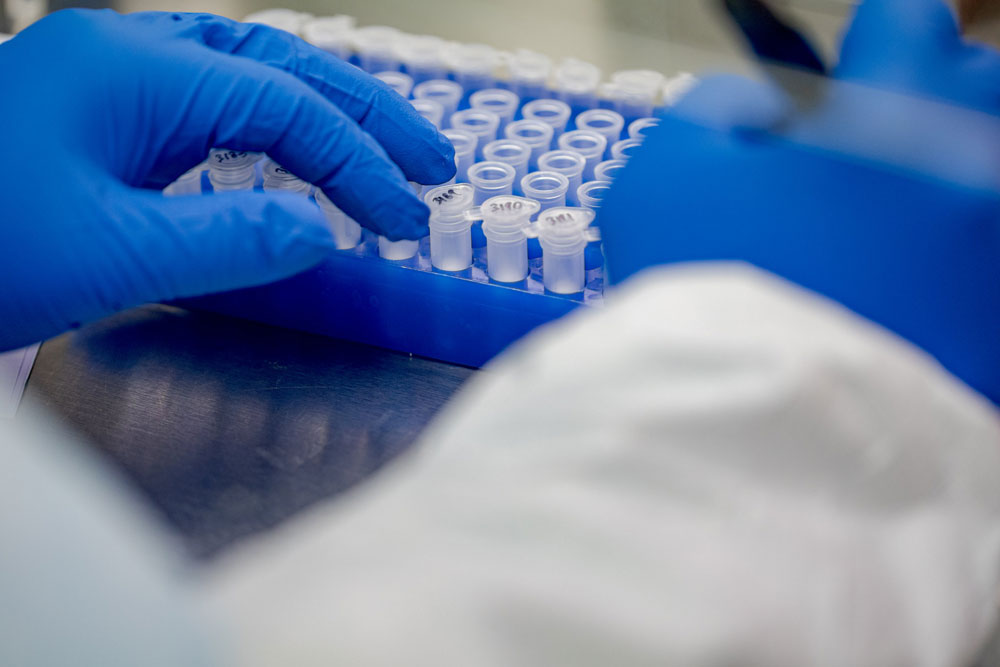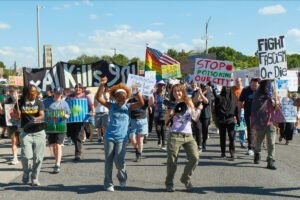
NPQ has often discussed the dangers of philanthropy filling in for public systems. In Seattle, one of the region’s most seriously affected by the COVID-19 coronavirus, Amazon and the Bill & Melinda Gates Foundation and Amazon are frantically trying to fill in for delayed US government testing, bringing the scope and scale of the real issues into stark relief.
Last night in his address to the nation, President Trump blamed Europe for the spread of what he termed this “foreign virus” in the United States while insisting that the government has acted “with great speed and professionalism,“ an assessment very few share. Even the conservative Washington Examiner panned the speech, in which he said, “We are marshaling the full power of the federal government and the private sector to protect the American people. This is the most aggressive and comprehensive effort to confront a foreign virus in modern history.”
That is a remarkable assertion, since he was essentially downplaying by tweet the potential impact of the virus even as recently as Monday. Of course, since then, the Dow took a dive and job losses started in earnest.
Shades of Brownie.
Ignore the fact that the United States has done less testing than most countries at risk because it refused to make use of the testing kits made available through the World Health Organization prior to the US’ development of its own. Tests have, until recently been difficult to obtain for anyone who did not meet a set of criteria that included travel outside of the country. Meanwhile, 10 nursing home facilities saw contagion spread in Washington, and 22 people died. Those delays have left many with no guidance that would allow them to act responsibly in the midst of the outbreak. No one has taken responsibility for that set of issues, but instead, the administration, taking a dogeared page from its own playbook, focused on the “containment” of travelers from China.
As of last night, the president also vowed to suspend all travel from Europe to the United States for the next month. (The official statement from the Department of Homeland Security walks that back somewhat.) “Smart action today will prevent the spread of the virus tomorrow,” Trump said, perhaps unaware that that horse has already left the barn, and that the entire country is hamstrung by its lack of capacity to trace the spread of the pathogen. This morning, the Washington Post reports:
Using disease transmission modeling, a study published in the journal Science found that China’s January 23rd ban on travel in and out of Wuhan slowed domestic spread by only three to five days because, by the time it was implemented, more cases had been diagnosed in other Chinese cities.
Sign up for our free newsletters
Subscribe to NPQ's newsletters to have our top stories delivered directly to your inbox.
By signing up, you agree to our privacy policy and terms of use, and to receive messages from NPQ and our partners.
The same modeling found that the travel ban slowed international spread by a matter of weeks but not enough to reduce the virus’s long-term effect—an important lesson for other governments as they determine next steps.
The Post then points out that “the Chinese government’s sudden shift from denial to drastic measures also eroded public trust,” which caused a kind of chaos that resulted in extreme and ill-timed measures being taken. “The prime strategy for containing the virus has been quick diagnosis, quick isolation, quick treatment,” said Ivan Hung, chief of infectious diseases at the University of Hong Kong’s medical school.
It should be noted that while the ultimate impact of the virus remains highly uncertain, public health measures can make a big difference. In China, Hung notes, after a poor initial response, the Chinese government did well by aggressively increasing production of test kits, taking over hotels and school dormitories to quarantine suspected cases, and building new facilities to isolate patients.
Even slowing the progression of the virus helps because if cases are distributed over more time, it makes it far easier to care for the most vulnerable when they get sick, reducing mortality rates, as studies of the 1918 influenza epidemic that compare the responses of different US cities document.
Could we use the help of the mega-rich? Sure, but it’s worth remembering that Seattle, where the Gates and Amazon efforts will be focused, is a part of a much larger country, and the barn door is already wide open. This, then, leaves nonprofits embedded in communities facing a complex state of affairs that will hit the economically vulnerable most harshly—again. Meanwhile, a potential recession looms.
This is a moment when we should be reinforcing the role of a responsible government and giving healthy respect and funding to the science of public health; instead, we are faced with a fractured system attempting to patch up its image by displacing responsibility.
NPQ will be spending some time on this state of affairs in the next few weeks under the guidance of Jeanne Bell, and we welcome other contributions to this space.











